Joe Coffee’s Director of Roasting, Amaris Gutierrez-Ray, is the founder of the Women in Coffee Project (WICP). Amaris has worked in coffee for more than a decade—from barista to retail manager to production to her job today at Joe, managing the roasting department as well as sourcing green coffee. Along the way, she found herself asking questions. Questions like: why do women do so much behind the scenes in coffee, particularly at origin, but their voices aren’t heard? In what ways can we share their truth with others throughout the community? How can we celebrate them and elevate their experience? We spoke with Amaris at Year One of the WICP to discuss the path this journey has taken so far.
Congratulations on 1 year of the Women in Coffee Project! For those who aren’t already familiar, can you tell us what the Women in Coffee Project is, and describe your mission?
Thank you! I have been thinking we need to have a birthday party or something to celebrate. We started in October of 2018, so we are a little overdue!
The Women in Coffee Project is a platform for women in different roles in coffee-producing countries to share their stories and their perspectives. The world of coffee is as complex as it is diverse, and without context, it’s difficult to learn about, or even measure, gender equity from country to country.
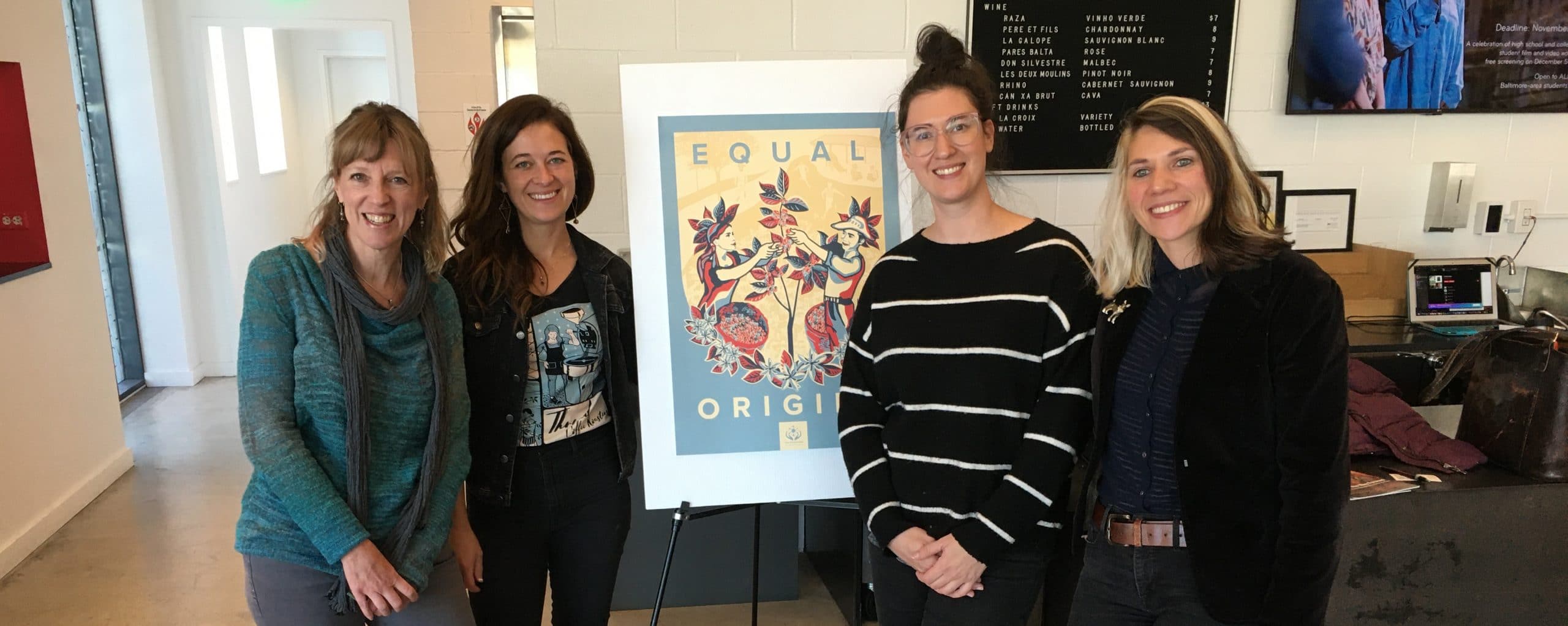
What inspired you to start the Women in Coffee Project?
When I started the WICP, I was impressed by the fact that women make up about 75% of the workforce in coffee, and are often in roles that directly relate to quality in the early stages of a coffee supply stream (hand-harvesting, processing, fermentation). The specialty coffee industry is really concerned with quality and consistency, and yet I was surprised to learn the voices of women are not the majority heard.
I started searching the internet for more information about gender equity, and also quickly realized that research and measurements differ depending on who is reporting the data. And, on top of that, there’s a lot that is difficult to measure in the first place. For example, a common obstacle for female producers to access training or workshops in their regions is a lack of transportation and/or childcare. In order to accurately report whether a training session has been successful in reaching women in that community, one also needs to measure if they are providing those things so that women can actually attend. The context there is key. That’s the difference between equity and equality: moving toward a more equitable future means we are observing the differences between us and accounting for them.
Our mission is to do just that. We also hope for information to go back and forth between consuming and producing countries. We have great technology on our side! We primarily use Instagram as a means to communicate and take a peek into each other’s lives. We do full-length interviews with women in different roles, and then publish them online and give them the space to do an Instagram Takeover and share what a day or a week in their life looks like.
In what ways do you work to facilitate dialogue and provide an empowering platform for women in the coffee industry?
There is a lot of demand right now for transparency in coffee from the consuming side, which is a truly wonderful thing, but I think consuming countries also need to be open to questions asked of us. We see a need for a space to engage outside of preexisting business relationships. We advocate for awareness, and that means encouraging each other to be aware of any subconscious power dynamics inherent to roles between first- and third-world countries. Simply being aware is often the key to learning how to act with sincere professional respect.
That’s why the other key component of our vision is to invite four or five women (in groups of 2, for community and support) each year here to NYC for a panel event and visit. Their stay gives us more time to listen to each other, ask questions, taste coffee together, and learn from each other. Throughout the year we fund raise to be able to cover all transportation and lodging costs for our invited guests. We also host events to support organizations that are engaged with supporting women in coffee-growing regions (in the past we have hosted fundraisers for Grounds for Health, the Partnership for Gender Equity, and the International Women’s Coffee Alliance).

Has the WICP and its goals evolved at all since its inception? If so, how?
We have definitely evolved. I think when we started I envisioned us hosting panel events every quarter, but I was quickly humbled to learn we need to work around a producing woman’s schedule, and not my own! Every country has its own harvest schedule, so I had to be open to the dates that worked for the women I was inviting. In the same way, truly listening (as an active verb) takes time! Interviews take time, especially when we are primarily connecting over the internet and speaking during a harvest season. It’s humbling when someone makes time to answer questions for an interview for this project, so I try to honor that time by being as intentional as possible.
We also have become more of a resource. Different companies have asked how they can get more involved in gender equity, and support women in coffee. Since we don’t provide market access to female producers ourselves, we share lists of coffees from different IWCA chapters or encourage roasters to consider donating portions of retail sales to organizations supporting women in coffee.
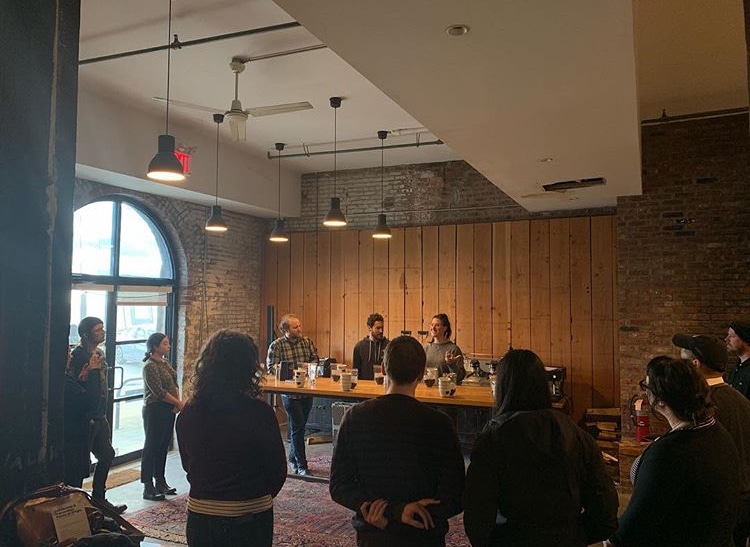
What kinds of projects or programming did you take on last year?
Last year we hosted a month-long cupping series for Women’s History Month. We invited different roasting and importing companies to highlight the female producers in their supply streams, and opened the tastings to the public. It was so great to see the energy and enthusiasm that other companies have for supporting gender equity and celebrating coffees produced by women. It brought different communities here in NYC together and was a great way to learn more about how gender equity is expressed differently. Having access to someone from an importing company for an evening to ask questions was radical, and I noticed it sparked a lot of enthusiasm for folks from roles in retail spaces, who don’t often have the opportunity to engage with this side of coffee.
We also collaborated with Fincas Mierisch in Nicaragua to make WICP tote bags! It came out of a conversation with the panelists from Nicaragua last year, about how off-season work is hard to find. A project like this allowed us to pay a fair wage for the materials and labor to make the tote bags, allow for a little more job stability for a group of women outside of harvest time, and incorporate local jute and the screen printing press they use to print coffee sacks. The women collaborated with a local dressmaker to put them all together and add in colorful straps. Each tote can hold up to 12 pounds of green coffee 😉 And it gave us a product we could use for our own fundraising efforts. We’re definitely going to try to do this again in 2020!
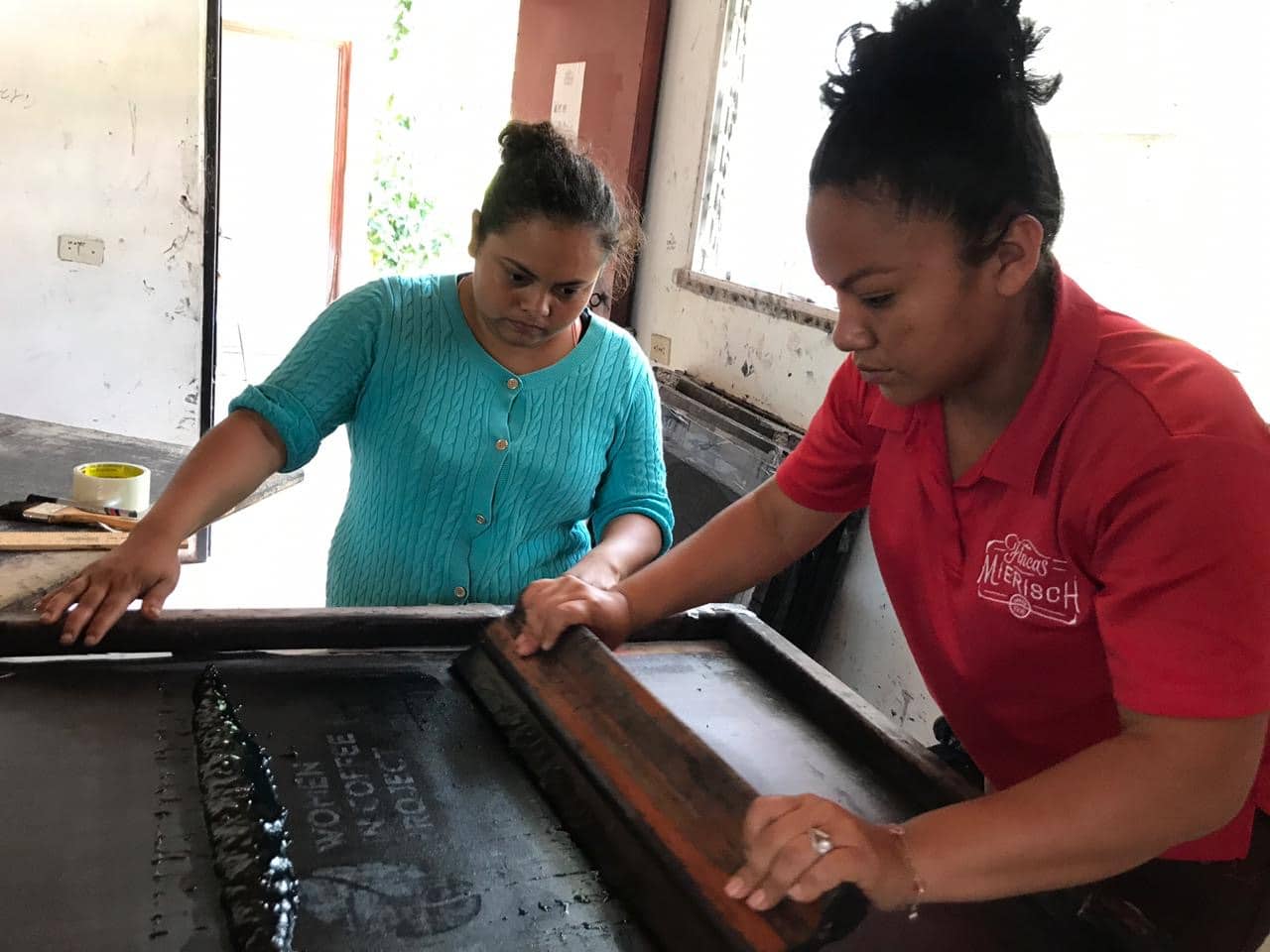
Q: Starting the WICP was an ambitious undertaking with your workload as our Director of Roasting. What were some of the biggest things you learned in the process?
Wow, so much! (I’d be lying if I said I had time management figured out. It’s a process!) My day job overlaps with some of my goals for the WICP. Learning how to listen, how honesty and compassion are two sides of a coin and both should be inextricable from respect, the vulnerability of being grateful and sincerely generous — these will always require practice. The WICP has given me a lot of practice, and it’s benefitted my Joe role in ways even I probably can’t imagine.
To be candid for a second, it’s not part of my personality to be overly emotional or even understand emotions very well, but through this project, I’ve been exposed to many different, passionate women all over the world. Speaking with them has fired me up, given me access to myself in some ways, and has also incubated a deep appreciation for the emotions we all share. It’s a great human gift and offers us common ground.
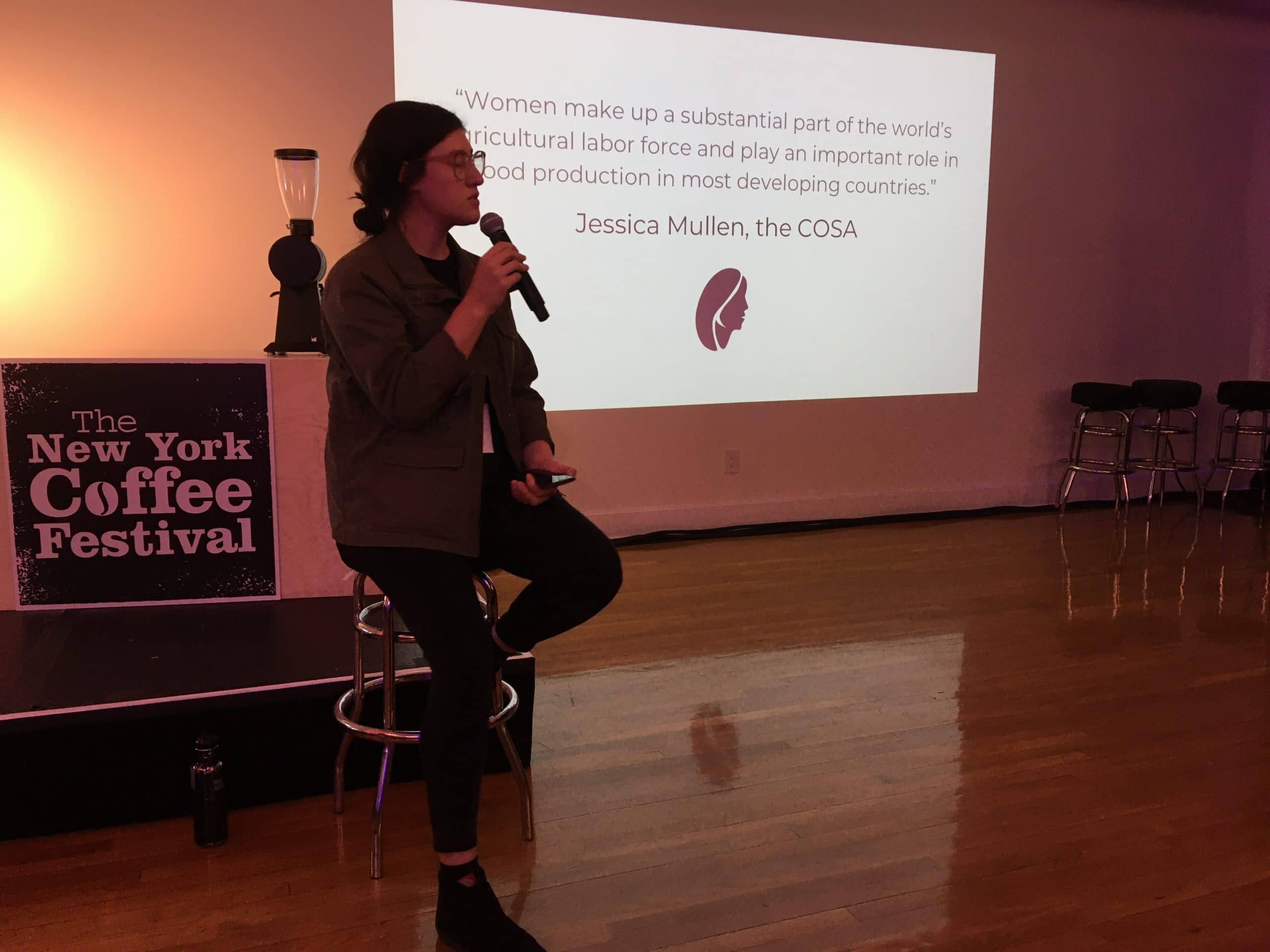
Q: You’ve had the unique opportunity to have conversations with many women. Can you share one of the most interesting conversations you’ve had?
For last year’s panel event, my Nicaraguan mom surprised me by showing up for it. She came the day before the event, and I had planned to have dinner that night with coworker Kendra Sledzinksi and our invited panelists (Eleane Mierisch, Haisell Beteta, Dulce Barrera, and Melanie Herrera). The women we invited for that panel, our first event, were all native Spanish-speakers, like my mom, and from Nicaragua and Guatemala. So my mom came with me to dinner, and while we were heading over there, I remembered in each of the interviews with the panelists beforehand, they had responded “my mom” to the question “Who inspires you the most?”
Being able to introduce my mom, one of the original strong women in my own personal experience, to these women I had learned so much from was really moving. We had an amazing conversation that night, about Nicaragua past and present, and so many other things. Kendra made an effort to speak in Spanish, the panelists made an effort to speak in English to share the burden, and my mom was so happy. It made me grateful for my own history and all of the moments that connected us in that group. The strength of women everywhere is a truly powerful thing.
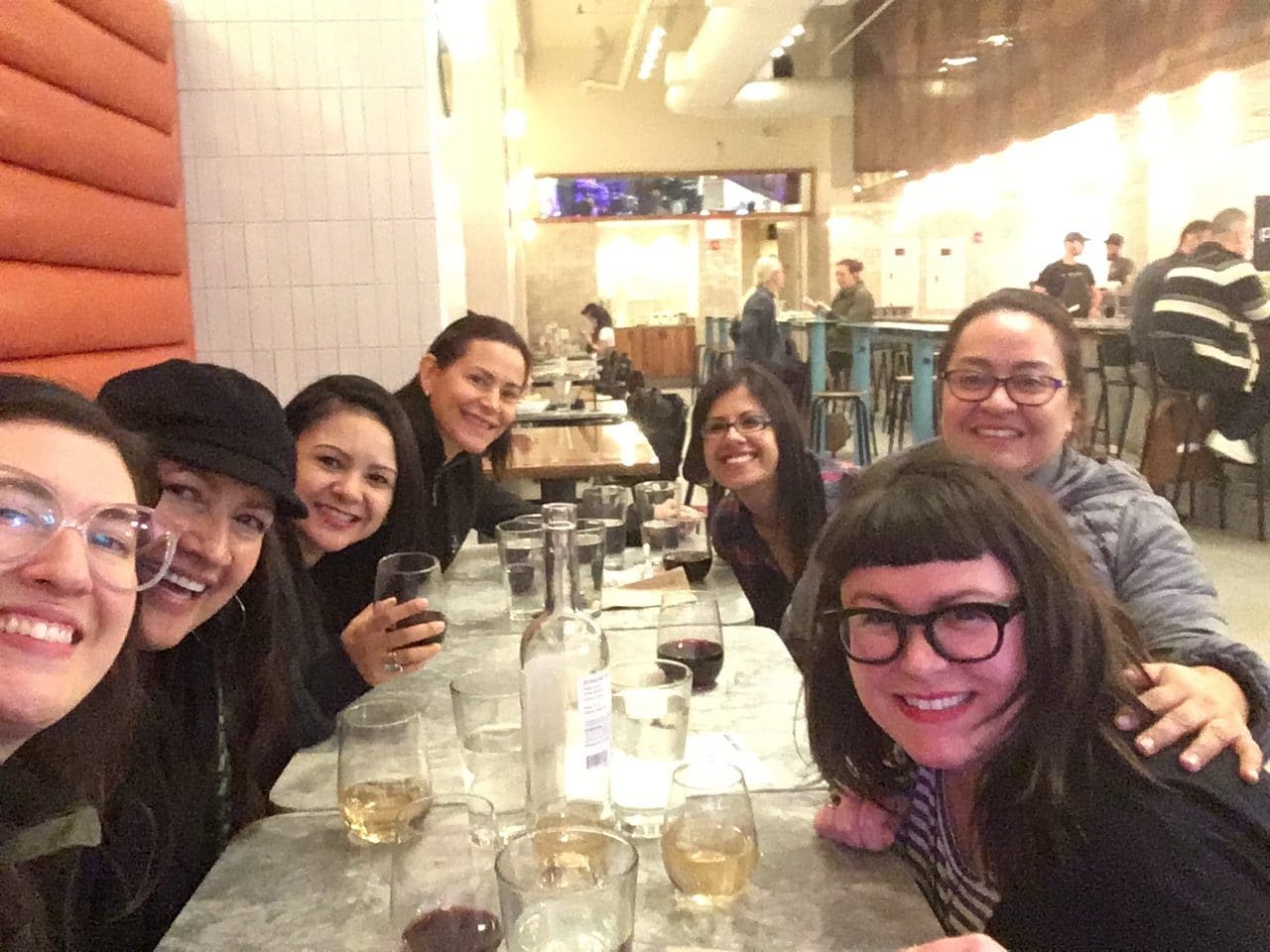
Your Instagram bio says, “One story isn’t enough to understand a person or place.” Through the dialogue the WICP has opened up, what would you say are the most common themes and challenges facing women in the industry?
Like in the rest of the sector, the challenges women face are related to economic disparity, adapting agricultural practices quickly to account for climate changes, access to healthcare. I’ve also heard a lot of practical optimism. The temporal nature of coffee as an agricultural product and the unity of communities working together seems to lend itself well to looking ahead to what can be improved in the coming years.
What’s on the horizon for the WICP this year?
This year we’re going to step up our communication game. I’m building a newsletter and learning how to improve our Instagram and marketing plans. We’re going to lean into our reputation for being a resource and create some documents that can be widely shared about how to get involved in the movement for gender equity. We’ll host our second annual panel event in October (panelists and date still TBD). We’ll publish even more interviews and Instagram Takeovers. We’ll take a few more steps toward our 3-year plan of attaining 501c3 non-profit status. We’ll collaborate on making some more tote bags with the community of women working for Fincas Mierisch in Nicaragua. I sense we are just hitting our stride after a period of a learning curve, and I can’t wait to see where this year takes us.
